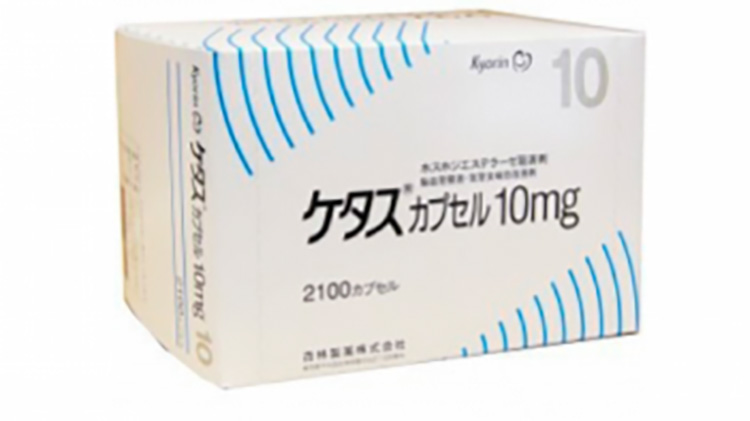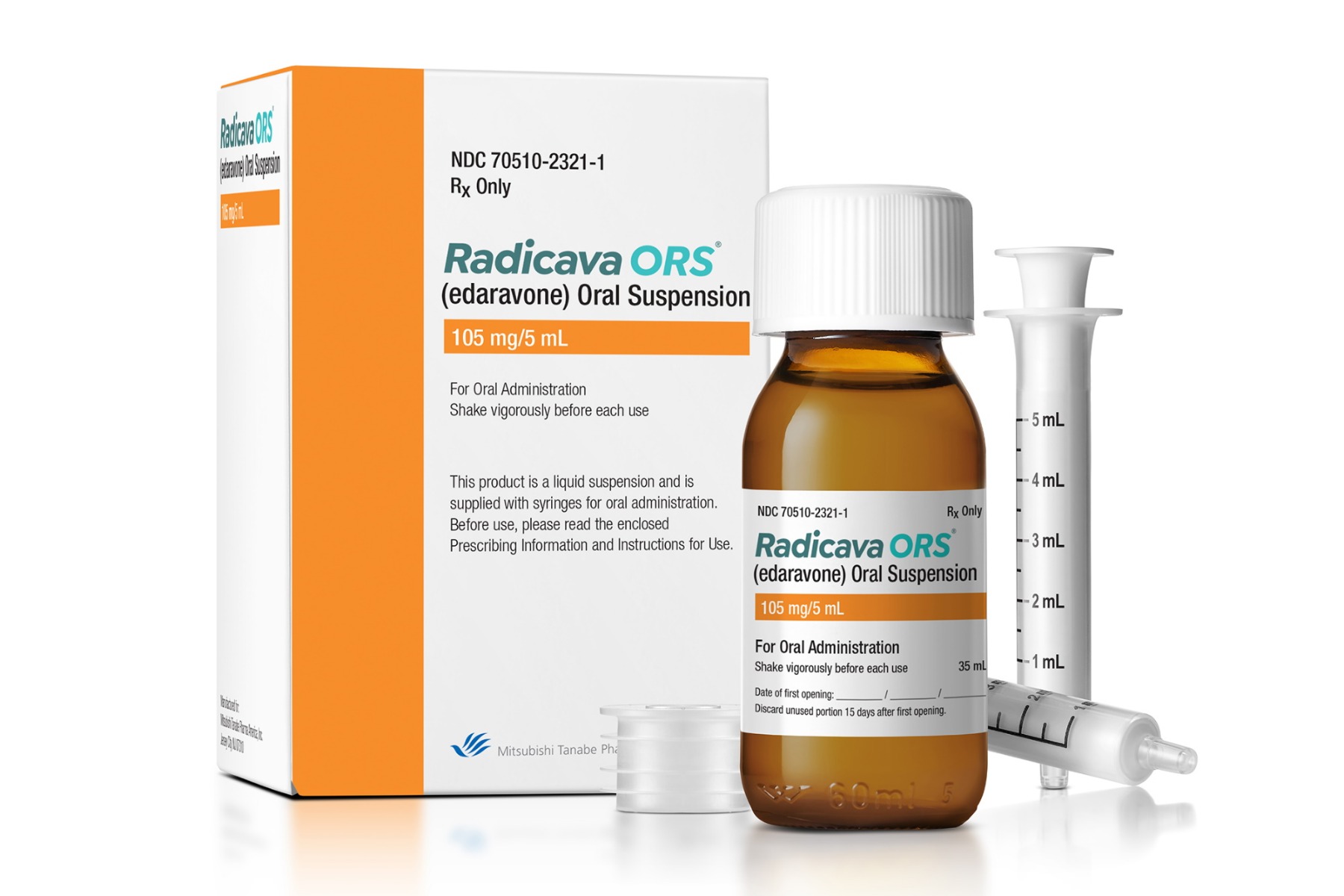Ketas (ibudilast) vs Radicava ORS (edaravone)
Ketas (ibudilast) vs Radicava ORS (edaravone)
Ketas (ibudilast) is a phosphodiesterase inhibitor with neuroprotective and anti-inflammatory properties, which has been investigated for off-label use in treating neurodegenerative diseases like multiple sclerosis and ALS (amyotrophic lateral sclerosis). Radicava ORS (edaravone) is an antioxidant that specifically targets oxidative stress and has been approved by the FDA for the treatment of ALS, aiming to slow the decline in physical function. When deciding between the two, it is important to consult with a healthcare provider to discuss the specific indications, potential benefits, side effect profiles, and the clinical evidence supporting the use of each medication for the individual's particular condition.
Difference between Ketas and Radicava ORS
| Metric | Ketas (ibudilast) | Radicava ORS (edaravone) |
|---|---|---|
| Generic name | Ibudilast | Edaravone |
| Indications | Used off-label for multiple sclerosis and ALS in some countries; not approved for any indication in the USA | Approved for the treatment of amyotrophic lateral sclerosis (ALS) |
| Mechanism of action | Phosphodiesterase inhibitor; suppresses pro-inflammatory cytokines and promotes neurotrophic factors | Free radical scavenger; believed to relieve oxidative stress |
| Brand names | Ketas | Radicava, Radicut |
| Administrative route | Oral | Oral suspension |
| Side effects | Nausea, diarrhea, abdominal pain, rash | Bruising, gait disturbance, headache, skin inflammation |
| Contraindications | Patients with severe hepatic impairment, history of hypersensitivity to ibudilast | Patients with a history of hypersensitivity to edaravone or any of the excipients |
| Drug class | Phosphodiesterase inhibitor | Free radical scavenger |
| Manufacturer | Kyorin Pharmaceutical Co., Ltd. | Mitsubishi Tanabe Pharma Corporation |
Efficacy
Efficacy of Ketas (Ibudilast) in Amyotrophic Lateral Sclerosis (ALS)
Ibudilast, known commercially as Ketas, is a phosphodiesterase inhibitor that has been used primarily in Asia for the treatment of asthma and post-stroke complications. Its efficacy in Amyotrophic Lateral Sclerosis (ALS) is currently an area of research interest, as it is hypothesized to have neuroprotective effects that could potentially slow the progression of the disease. While ibudilast is not currently approved for the treatment of ALS in the United States or Europe, early-phase clinical trials have suggested that it may reduce the rate of progression of ALS, as measured by the ALS Functional Rating Scale-Revised (ALSFRS-R). However, larger, more definitive clinical trials are needed to fully establish the efficacy of ibudilast in the treatment of ALS.
It is important to note that the use of ibudilast for ALS is considered off-label, and its efficacy for this indication has not been approved by regulatory agencies such as the U.S. Food and Drug Administration (FDA). Patients interested in ibudilast as a treatment option for ALS should consult with their healthcare provider and may need to consider participation in clinical trials to access the medication for this use.
Efficacy of Radicava ORS (Edaravone) in Amyotrophic Lateral Sclerosis (ALS)
Radicava ORS (edaravone) is an antioxidant medication that has been approved by the FDA for the treatment of ALS. The efficacy of edaravone in slowing the decline in physical function in ALS patients has been demonstrated in clinical trials. Specifically, a six-month placebo-controlled study showed that patients receiving edaravone experienced less functional loss as measured by the ALSFRS-R compared to those receiving a placebo. This led to its approval and use as a treatment option for ALS in the United States.
Edaravone is thought to work by scavenging free radicals, which are believed to contribute to the oxidative stress associated with the neurodegeneration in ALS. The introduction of Radicava ORS, an oral suspension formulation of edaravone, has provided an alternative to the intravenous form, potentially improving accessibility and ease of administration for patients. While the efficacy of Radicava ORS in ALS has been established, it is important for patients and caregivers to understand that the treatment is not a cure for ALS but may help in slowing the progression of the disease. Ongoing research continues to evaluate the long-term benefits and optimal use of edaravone in ALS management.
Regulatory Agency Approvals
Ketas
-
Pharmaceuticals and Medical Devices Agency (PMDA), Japan

Radicava ORS
-
Food and Drug Administration (FDA), USA

-
Health Canada

Access Ketas or Radicava ORS today
If Ketas or Radicava ORS are not approved or available in your country (e.g. due to supply issues), you can access them via Everyone.org.
How it works

Make an enquiry
Choose the medicine you want to buy, answer a couple of questions, and upload your prescription to speed things up. We’ll get back to you within 24 hours.


Make an enquiry
Choose the medicine you want to buy, answer a couple of questions, and upload your prescription to speed things up. We’ll get back to you within 24 hours.


Breeze through the paperwork
We'll guide you through the required documents for importing unapproved medicine, ensuring you have all the necessary information.


Get a personalized quote
We’ll prepare a quote for you, including medicine costs and any shipping, administrative, or import fees that may apply.


Receive your medicine
Accept the quote and we’ll handle the rest - sourcing and safely delivering your medicine.

Some text on this page has been automatically generated. Speak to your physician before you start a new treatment or medication.
Let's talk
If you have any questions, call us or send us a message through WhatsApp or email:
Contact us




